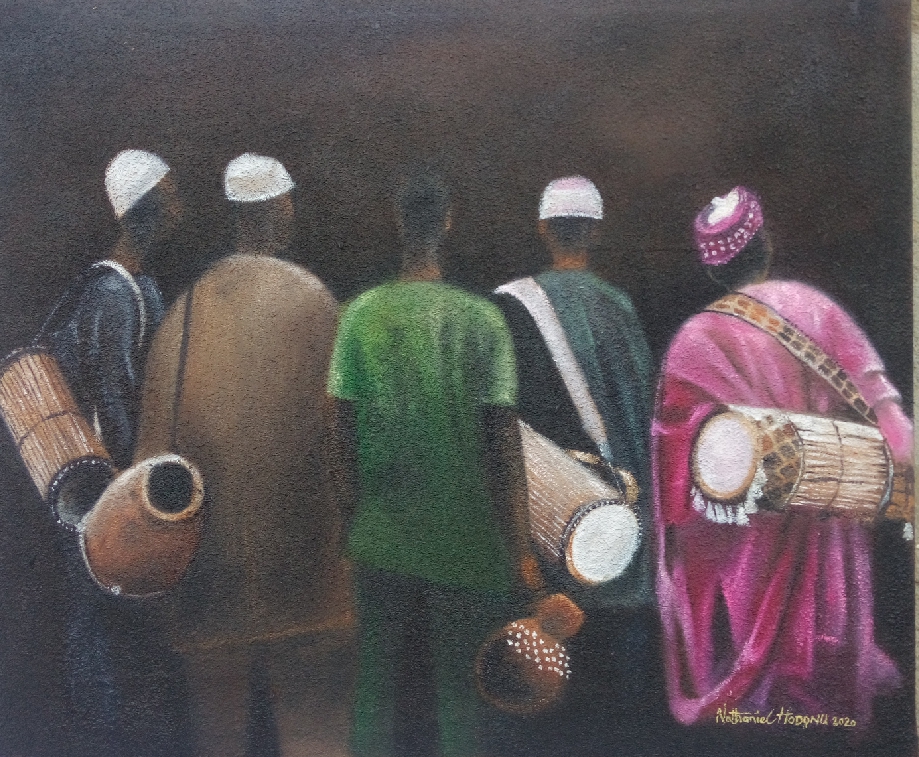Amaeshi’s business, political thriller at the heart of Nigeria’s under-development
By Ozoro Opute
IF you’re still wondering why Nigeria is a failed (or failing, as some optimists would have us believe) state, perhaps the best place to obtain firsthand knowledge on how and why Nigeria is what it is is to read Lawrence Amaeshi’s latest novel ‘Five Brown Envelopes’ (Narrative Landscape Press, Lagos; 2021). ‘Sweet Crude Odyssey’ was his first.
The apt maxim in the making of nation states is: seek ye first the political kingdom and all else shall be added unto ye! But with the political kingdom forever a mirage in a place like Nigeria, one can only imagine the zero ‘all else’ to be added, and why a kingdom may never emerge to prove the pessimists wrong.
Amaeshi’s genre fiction perfectly weaves business and politics into intimate bedmates, one feeding off the other such that one paralyses the other. The result is that no development ever happens because the interests so served in such relationships only benefits just a handful of powerful persons for whom politics is business and business a function of politics.
Nduka ‘Kaka’ Dabiri is rudely interrupted at his father’s fifth remembrance anniversary by his creditor, Zak; his late father had left behind a hefty debt in his construction company which his son is managing. He’d borrowed huge sums to build a hydro dam, but insurgents ensured he abandoned it midway. His failing health ensures gets worse and he dies. Now the bank wants its money back immediately. Not even the childhood friendship between Kaka and Zak, the banker, will make the bank to be lenient.
Kaka’s firm is bidding for a major railway project and stands the chance of winning the bid that will bring in billions of dollars, but the banker is on his neck and is threatening to liquidate Kaka’s firm and properties to get his money back. The federal debt buy-back company is also on Kaka’s neck and is ready to put all his assets on receivership. Meanwhile, Kaka’s firm has two competitors in the bid for the railway contract project, two powerful and ruthless forces. Curiously, the chairman of Federal Infrastructure Commission that supervises such contract tenders and bids is fronting his men to also bid for the contract. He desperately wants to clinch the contract to finance his presidential ambition at the next election. These two powerful forces are the strong tide Kaka must swim against to arrive at his destination of paying off his loan and securing a lucrative contract. How he does these two are at the heart of Five Brown Envelopes.
After the two forces fail to enlist Kaka to their sides for the contract, which they know he has a better chances of winning because of his strong foreign technical partners, they go dark and diabolic on him and throw all manner of spanners in Kaka’s wheel that almost bring him to his knees. But Kaka is a survivor, thanks to a number of persons and incidents and the fact that he’s also an innocent man being dragged down for being smart in a good way, a man of integrity those who operate the rigged business and political system hate and will do anything to destroy. For Kaka’s cooperation with the chairman to embezzle and divert money meant for the project, he offers him a political position of his choice in his home state. That is how much politics goes to bed with business where the expectations of the electorate get traded away with reckless ease.
At home Kaka is having serious issues with his wife that get to a head when brown envelopes begin to arrive in the mail, with the wife in a compromising position with another man in the third envelope that breaks Kaka’s heart to pieces. This sets Kaka and his cousin Binali on a tailspin to the gheto of Lagos to unravel the source of Kaka’s wife’s naked photos with another man. It turns out one of his competitors in the contract bid is at work.
Kaka also lands in court and is in danger of being sentenced to five years in prison for allegedly bribing the chairman of the bid agency. How does Kaka fight off such powerful men whose motive is to sabotage government’s processes that should ordinarily benefit the majority of the people?
Indeed, Amaeshi’s portrature of the chairman of the government’s contract awarding commission so exemplifies why Nigeria has remained stuck. Almost every politician is a contractor, not because they have a shovel to fix a village gutter, but because contracts promise huge sums that finance the next election and bogus lifestyles they have no personal genuine business to finance. This is why a small road to your village or street cannot be completed for years after billions had been announced for its construction. Someone somewhere has ‘chopped’ the money to finance his or her political position or expensive lifestyle.
In spite of Kaka and his wife Ure’s domestic issues of dual infidelity, the one real and the other in the distant past, they stick together at his trial for attempting to bribe the chairman of Federal Infrastructure Commission whose sole aim is to take Kaka out of the way for daring to compete with him for the contract bid. But by the time the fifth envelope arrives, it’s the fruit of his infidelity with the sister of one of his ruthless adversaries, a girl, delivered in faraway London. To get reprieve, Kaka goes through the worst nightmare imaginable – he’s sent to jail, almost assassinated, his cousin almost gets killed in an arranged accident, Kaka is blackmailed over his wife’s old romance made to look like current infidelity.
Amaeshi’s ‘Five Brown Envelopes’ is a thriller. It is an incredibly fast-paced read that keeps the reader thumping through the pages. Crime, passion, politics and business riffle through it in an amazing speed. The author ably blends the intersection of retrogressive business and politics in Nigeria’s peculiar environment and the ruthlessness of the political gladiators all over the country and why their own selfish interests, pursued with ruthless zeal, have held Nigeria’s development hostage. In effect, the political gladiators are the country’s worst bandits ever who are bleeding the country dry in dollars as ransom.




